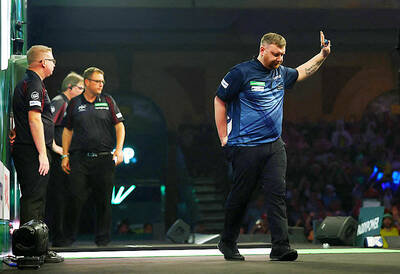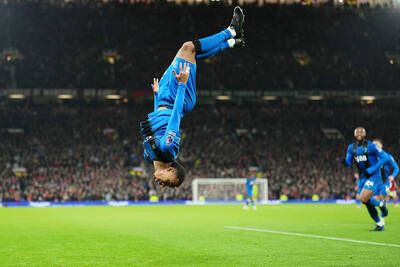Stanley Dancer, an eighth-grade dropout who became harness racing's most successful trainer, driver, owner and breeder during the sport's glory days from the 1940s to the 1960s, died Thursday in his home in Pompano Beach, Florida. He was 78.
The cause of death was complications from prostate cancer, according to his wife, Jody.
The US Trotting Association, which governs harness racing, once called Dancer "perhaps the best-known personality in the sport." He and the late Billy Haughton were the stars of the old county-fair sport that was revived in the New York City suburbs with the opening of Roosevelt Raceway in 1940 and Yonkers Raceway in 1950. The sport retained its new stature until casinos and lotteries took away the largest chunks of the betting dollar.
Dancer began driving horses in 1945 at Freehold Raceway in New Jersey. His first victory came in 1946, his 3,781st and last in 1995. In 1964, he became the first driver to win US$1 million in purses in a year, and in 1968 he drove the pacer Cardigan Bay to the first US$1 million year ever for a horse. Over his career, he won US$28,002,426.
"I've made a lot of money in the horse business," he once said, "which to me was like never having to work at all. I've been blessed with some of the greatest horses of all time."
He is the only driver to have won three triple crowns for 3-year-olds: with the trotters Nevele Pride in 1968 and Super Bowl in 1972, and the pacer Most Happy Fella in 1970. Seven times he trained and drove the harness horse of the year: the trotters Su Mac Lad in 1962; the trotter Nevele Pride in 1967, 1968 and 1969; the pacer Albatross in 1971 and 1972; and the pacer Keystone Ore in 1976. Four times he drove the winner of the sport's premier race, the Hambletonian for 3-year-old trotters. In 1969, he was inducted into the Harness Racing Hall of Fame.
At 5 feet 8 inches and 135 pounds, he was quiet, soft-spoken and meek looking. As Red Smith wrote, "He doesn't look old enough to be let out for night racing." But in an era when drivers would generally dawdle for three-quarters of a mile and then stage a cavalry charge over the last quarter-mile, Dancer introduced an aggressive style that forced rivals to drive hard from the start.
He remained aggressive despite an endless physical beating. He survived 32 racing spills, four auto accidents, a helicopter crash and a plane crash. In his driving days, he had two heart attacks. In 1955, he broke his back. In 1973, his right arm started to atrophy from nerve damage sustained in a collision 18 years earlier. In 1988, he broke two bones in his back and tore the rotator cuff in his right shoulder.
Several times, doctors told him to quit driving. He refused, once saying: "There is nothing dangerous about harness racing. The worst crackup I ever had came in an auto accident."
Stanley Franklin Dancer was born July 25, 1927, in West Windsor, New Jersey, near Trenton, and was raised on the family farm in New Egypt, New Jersey.
He bought his first horse with US$200 borrowed from his parents. In his first race as a driver, wearing borrowed silks, he drove a horse he bought for US$75 with 4-H Club prize money. He lost the race, but within 10 years the man who had lent him the silks was working for him.
In 1948, he started a stable with a broken-down 7-year-old trotter, Candor, bought with US$250 that his wife had saved for college. Over the next three years, the horse earned US$12,000, and a career had begun.
As William Liggett wrote of Dancer in Sports Illustrated, "His public acceptance came almost immediately in the big time in front of the largest crowds available and, more importantly, where the greatest amounts of money are bet."
Dancer's great regret was that his sport had lost so much prestige. In 1995, he told the New York Times: "It breaks my heart that harness racing is not as popular as it once was. I guess I was a big celebrity back then, but I still get my kicks."

The pressure was already on Real Madrid coach Xabi Alonso before their 2-1 defeat to Manchester City on Wednesday in the UEFA Champions League raised further questions about his future. Arsenal remain perfect in this season’s competition and three points clear at the top of the standings after a 3-0 win against Club Brugge, while defending champions Paris Saint-Germain were held 0-0 at Athletic Bilbao. The clash between Madrid and City was the standout game of the round amid reports this week that Alonso had lost control of the locker room. Speculation over his position is likely to intensify after the latest

By the time Cameron Menzies finally left the arena on Monday, the blood gushing from the gash on his right hand had trickled down his wrist, part of his forearm and — somehow — up to his face. Smeared in crimson and regret, and already mouthing sheepish apologies to the crowd, he disappeared down the steps, pursued by a stern-looking Matt Porter, the chief executive of Professional Darts Corp (PDC). The physical scars from Menzies’ encounter with the Alexandra Palace drinks table after his 3-2 defeat against Charlie Manby at the Darts World Championship would be gone within a few weeks.

Manchester United on Monday blew the lead three times to miss out on moving up to fifth in the Premier League as AFC Bournemouth would not be beaten in a thrilling 4-4 draw at Old Trafford. United have lost just once in their past 10 games, but Ruben Amorim would be frustrated as more points at home were frittered away despite arguably the best attacking display of his reign in charge. Amad Diallo and Casemiro gave the hosts a halftime lead either side of Antoine Semenyo’s equalizer. Two Bournemouth goals from Evanilson and Marcus Tavernier in seven minutes at the start of the

‘HIGH STANDARD’: The Thunder are on track for a Finals-Cup double after they scored 22 three-pointers in equaling the best 25-game start to a season in NBA history The Oklahoma City Thunder on Wednesday bagged a 16th straight victory, thrashing the Phoenix Suns 138-89 to romp into an NBA Cup semi-final clash with the San Antonio Spurs, who stunned the Los Angeles Lakers 132-119. NBA Most Valuable Player Shai Gilgeous-Alexander scored 28 points to lead the reigning NBA champions Thunder, who improved to 24-1 to equal the best 25-game start to a season in league history. They dominated from start to finish to book their place in the final four of the in-season tournament in Las Vegas, where they are tomorrow to take on the Spurs. The New York Knicks and